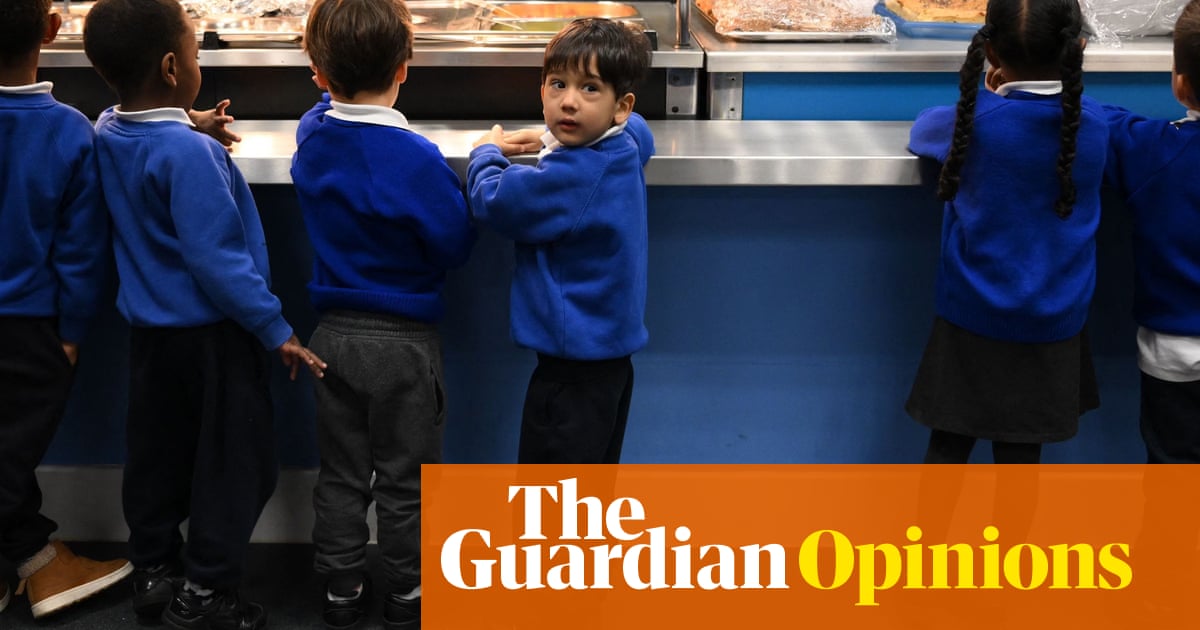
Hunger has a crippling influence on a child’s development. It robs them of their focus, energy and ambition. Hungry children in our classrooms are a source of national shame in a country as prosperous as ours. A growing number in London would have been unconscionable.
It is why, at the height of the cost of living crisis, and for the first time ever in our city, I took the decision to fund universal free primary school meals from City Hall. Now in its second year, the policy means that every pupil, in every state primary on every school day, can share a hot, healthy lunch with their classmates. In the first year of the scheme, more than 43m meals were served, benefiting up to 287,000 children. An independent report published this week confirms that our universal free school meals programme is proving a universal success for children, families, staff and schools – including in ways we did not anticipate.
Principally, the policy was introduced as a cost of living measure, and it has succeeded by helping parents and carers to save more than £1,000 per child since its inception. Yesterday’s report shows that 84% of families reported free school meals improved household finances. In many cases children were attending after-school clubs and trips, having previously been financially excluded.
The research also highlights an improvement in the health and wellbeing of children. Pupils enjoy school more and can concentrate for longer. Schools reported that classrooms are calmer and more productive. Children even tried new food – a triumph for every parent to celebrate. And by reducing financial stress on parents and carers, their mental wellbeing was similarly enhanced. Across the board, we see that those struggling the most are benefiting the most.
As someone who relied on means-tested free school meals growing up, I know first-hand the impact they make. But I also remember that while the meal was free, it came with a price. I vividly recall the embarrassment I felt as my friends headed to one queue and me to another with my token in hand.
Before we introduced universal free school meals in London, some children were required to wear wristbands once their family reached a certain level of debt and were served a subsidiary meal. Others hid lunchboxes from their classmates due to the shame induced by the contents. Some parents dared not apply for government free school meals because of the stigma attached.
Education is supposed to be the great leveller in society. Children sit in the same classroom, learn from the same teacher and read the same books. But school feels very different when your family cannot afford to feed you. Your earliest memories are of disconnection, that you are less. And it lasts. The cynic will say universal provision is a middle class handout, but go into a school lunch hall in London and you will witness children of all backgrounds engaged in a shared experience, with every child now feeling they belong, because exclusion has given way to equality.
In addition, the independent report found that our universal free school meals policy has practically resolved the issue of dinner money debt. School staff no longer spend time sending emails, drafting letters and making calls trying to collect money, giving them more capacity to work on enriching the lives of pupils. Meanwhile, parents and carers have been relieved of the shame and stress of being chased for outstanding bills. The absence of debt has meant the relationship between schools and families has been greatly improved.
I take heart from the incredible impact our universal free school meals programme is having on the next generation of Londoners, but I am acutely conscious they are carrying the burden of economic and political failure caused over the past 14 years. Much more needs to be done to alleviate it.
Perhaps the most egregious transgression committed by the Tories was erasing the progress made on child poverty by the previous Labour government. The number of children in poverty has soared by 700,000 since 2010. More than four million children are now raised in a low-income family, and one million experienced destitution last year. And as we know, that disadvantage follows many of them through life. In the starkest terms, they will earn less and die younger than their more affluent peers.
Labour’s recent landslide was, in part, a demand for something better for our children, and the budget provided an outline of what the response will look like. An additional £2.3bn in school funding was committed to for next year. Schools left to crumble under the weight of Tory neglect will be rebuilt. Teachers’ pay will begin to reflect their true worth to society, and 750 schools will have breakfast clubs set up in the spring – the first step to free breakfast clubs in every primary school across England. Investing in our nation’s future by developing the talents of everyone is once again a central cause of the UK government.
For our part in London, I am proud to say the more we learn about universal free school meals, the more there is to love about them. They will be a fixture on our school dining tables for every state primary school child for as long as I am mayor.




